“Stay safe!” or “Be careful!” were common mantras of friends and family before we left for India. I think when traveling abroad to new and different places, it’s only natural to have fears about what your life might be like in this alien world. Is the food going to be delicious or disgusting? Will I be sleeping under a tarp or tile? Will I get constant bouts of diarrhea from the drinking water? Are people going to treat me terribly just because I look different?
Well it turns out that a few of these fears had a bit of validity in regard to our trip. Some of the food dishes here have been amazing and finger-licking good, while others have brought us to the verge of regurgitation. We have also had diarrhea… a lot… which I know you totally want to read about. However, there is one fear that turned out completely differently than we expected: will we be treated poorly by the local community?
———————————————————————————————————
If someone moves to America from a primarily non-white country (India, Pakistan, Mexico, South Africa etc.), I am under the impression that they are treated with suspicion and feelings of unwelcome by their new community. That could be a biased perspective (since I grew up in rural America), but I’m 100% sure they aren’t treated the way Wende and I have been in Gujarat, India.
Within a few days of arriving here, we noticed that many people were inviting us to their homes. Our contact in Mumbai, hospital workers, and random patients would just walk up and ask us to visit them in a nearby village. When you have dinner at a friend’s house in America, you may say things like “Thank you for having us,” or “I’m sorry to cause extra work for you!” When we visited our first home in India, we expressed these same attitudes of gratitude only to have them shooed away. Our host said, “You are the first international person to visit my home – it is an honor to have you here.”
Wow… there are not many people to which I would say “it is an honor to have you in my home”, and all of those people possess a bit of “Celebrity Status.”President Obama, Brad Pitt, Paul Farmer – just a few of the people who would garner this sort of response from me. But by traveling to rural India, Wende and I had inadvertently passed through some “anti-racism” wormhole, in which the color of our skin resulted in instantaneous celebrity treatment.
Think this is a bit of an exaggeration? Well, let me tell you about a typical trip to dinner with a friend. We start our walk from the hospital, and instantly the spotlight is turned on us. Children are calling out to get our attention or following us along the road, doing silly stunts to make us laugh. The closer we get to the main highway, more and more people are starting to stare at us. Our friend says, “Woah, people are even staring at me because I’m with you!”
The restaurant is next to the highway, so we start walking up the exit ramp. It’s amazing that every car passing us doesn’t swerve off and crash on the side of the road because all of their attention seems to be focused on us. Often the passengers are waving, and the car will slow down to a crawl just to give the occupants more time to stare. As we make our way onto to the shoulder of the highway, the ruckus continues as car after car honks its horn while passing just to say, “Hello!”
We reach the restaurant, which is split into two sections: the Non-AC Hall and AC Hall, in which they charge more for food. We opt for the Non-AC side because what is one more hour without AC in a non-AC world? From the moment we step into the restaurant, there is a disturbance in the flow of their usual operations. Servers go out of their way to treat us, and it is clear that we are receiving different treatment from the other customers. A number of people come up to us in the restaurant and ask, “What city are you from?” They ask the question as if they expect the answer to always be something like New York or Hollywood, and are thoroughly disappointed/confused when we say Beckley, West Virginia.
Once we are completely stuffed with paneer, and some of our food has been packed up to-go in containers we brought with us, we set off for the comfort of the hospital’s apartments. On our way back, an unsolicited car pulls over, full of beaming faces who seem excited just to get the chance to talk to us. They ask, “Would you like a ride anywhere?” We politely decline while simultaneously wishing hitchhiking were this easy in the US. Then we finish our journey back, finally reaching the peace and quiet of our surprisingly firm bed.
I know what you’re thinking, “This all sounds a bit dramatic Austin. I mean, white people can’t be THAT hard to find in the area you’re in.” Well, I’ve been here for over two months, and I have seen one other white person since I left the airport in Mumbai. This girl was leaving the hospital, walking out of the main gates, when I spotted her from behind. I was struck with the sudden urge to run up and yell, “Hey! I’m white too! :D” However, my senses got the better of me, plus I had the very legitimate fear that I would arrive only to have her start speaking to me in German…
In America, since I have always been surrounded by people who are also white, I have not been conscience of my own preference for the company of people who may look or sound similar to myself. Before visiting India, I had never instantly felt a sense of camaraderie upon seeing another white person, and I’ve definitely never had the desire to run up to them shouting about their skin color. However, my time here has shown me the comfort that can come from spending time around those that look or sound like you (mostly Wende in my case). I can better understand the emotions that would result in sub-communities popping up in America comprised primarily of citizens that originated in a different country (e.g. Italians in The Hill or Mexicans on Cherokee Street in St. Louis).
My experience here has also given me a glimpse into what it might be like to immigrate to America. Traveling to a strange country, leaving most of your friends and family behind, where you are unaware of local customs and can’t even speak the language. Coming to India, I had the fortune of currency exchange in my favor, but I can only imagine how difficult it would be to arrive in America if the opposite were true. Taking your first trip to a “Superstore” (an already overwhelming concept after the vegetable stands you are used to), only to find out that everything you need to live off of costs ten times more than you expected – on top of that, every product looks different than it did in your country, from the giant onions to the jugs of milk. You must buy a new outfit to fit in better at work, but you only afford one or two outfits that you must wash every night. You want to make friends, but everyone has a hard time understanding your English (even though you spent months, even years trying to learn it).
It’s incredibly difficult to leave all of your family and friends behind for some unknown life, and I think we give immigrants in America a hard time. After glimpsing the disparity of wealth between America and rural India, I believe that any person who can muster up the finances (and courage) to get themselves to the USA deserves a chance to make a life there.
There is a smiley woman here named Ansuben. She works in the community health office and puts in tireless effort for her projects. She seems like a happy person, but every week she approaches us and asks, “Will you please take me back to America with you?” When I hear the yearning in her voice, the hope to make a new life for herself, all I want is to help her come to America. We had Ellis Island at one point, where all that stood between the status of illegal immigrant and American citizen was a health screening.
If it’s people like Ansuben on the other side, I say open the island back up. When she makes it past immigration, I’ll be the first one there to welcome her. I will never make fun of her difficulty in learning English. I will be the neighbor that welcomes her to our community, and I will have the pleasure of inviting her to my home. Then I can be the one to tell her, “It is an honor to have you here.”
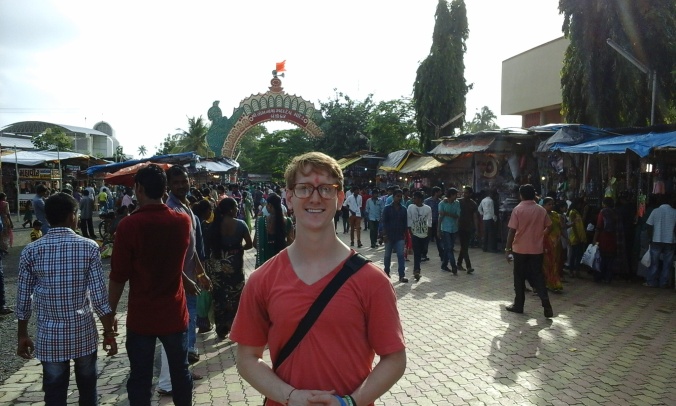
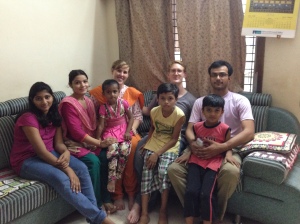
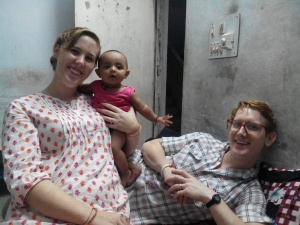
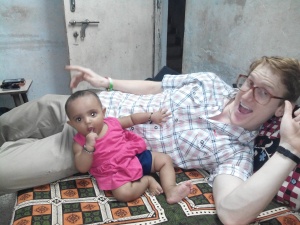
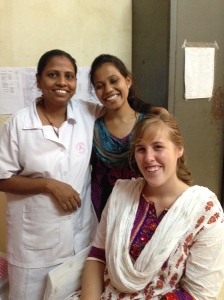
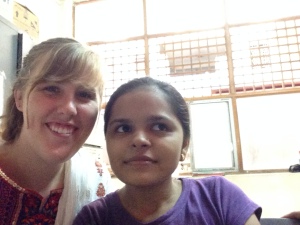
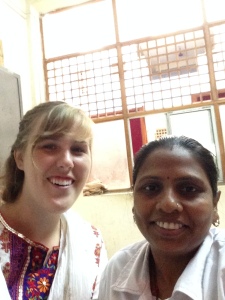
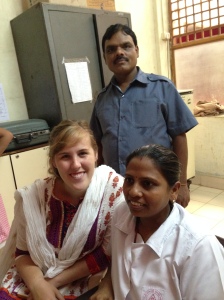
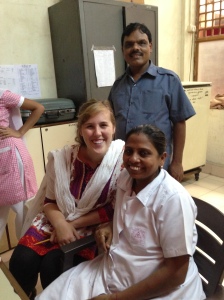
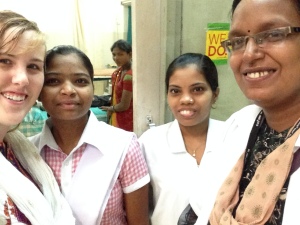
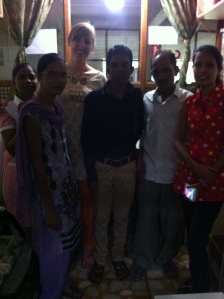
There is intrinsic comfort and safety that comes from being with your own “kind.” It’s why the U.S. has always seen enclaves of immigrants from a certain country or region develop. It’s why we have Chinastown, and Koreatown, and Little Italy. It’s why people from WV feel an instant camaraderie when they discover a fellow vacationer at Myrtle Beach is also from the Mountain State. Heck, half the people at Myrtle Beach are from West Virginia!
This is an eye opening post. It’s easy to believe that people worldwide have access to the culture, information and 24 hour news cycle that we can access with push of a button, the click of a mouse or the turning of a page. Sure, perhaps “the world is flat” on some levels, or at least in the process of flattening economically, but this post really well illustrates how insular societies can still be across the globe. Particularly interesting to me is the fact that India had a long history of British colonial influence and cultural infusion.
Thanks for writing this. Really made me proud of you reading it.
Oh, and HAPPY BIRTHDAY! I love you!
My heart is so full, it is overflowing through my eyes…….Happy Birthday dear one….
It’s inspiring to hear how welcoming the people are– imagine if all people so readily embraced those who are “different.”
Another great adventure read from India. Keep them coming you bring this country and the people alive for me.